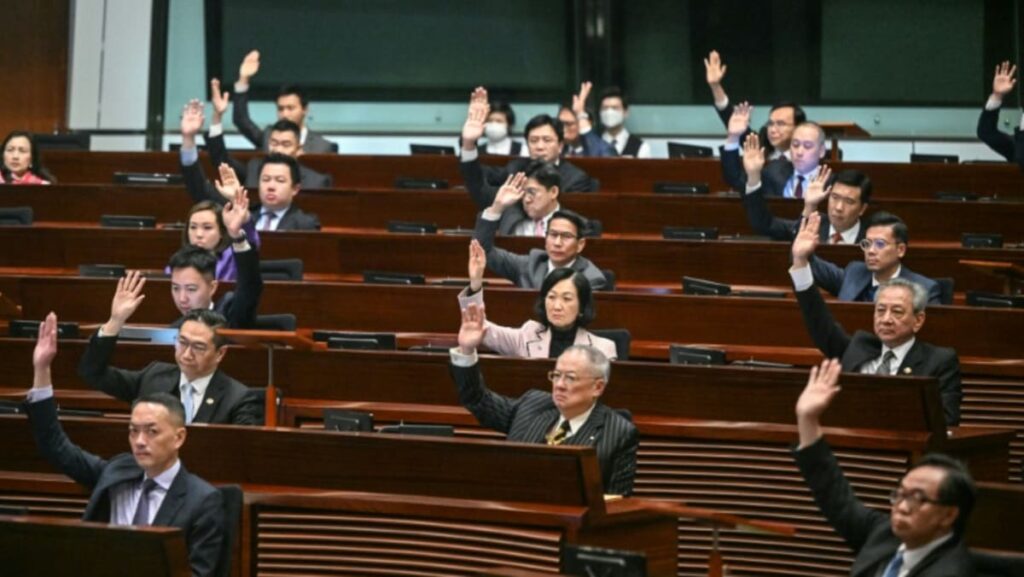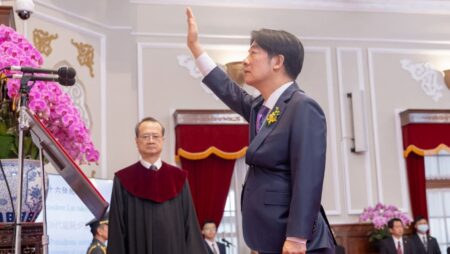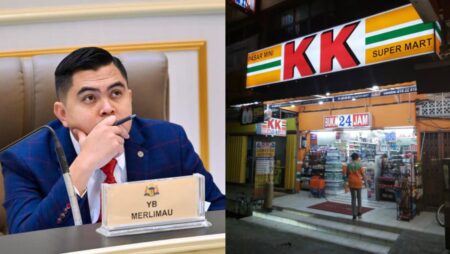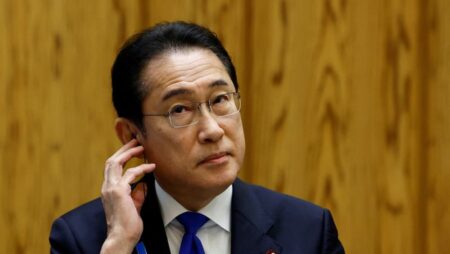“GRAVE CONCERN”
The newly passed law, which punishes treason, insurrection, theft of state secrets and espionage, sabotage, and external interference, will work in tandem to plug up “gaps” left by Beijing’s legislation, Hong Kong’s leader John Lee has said.
The government has argued its creation was a “constitutional responsibility” as outlined under Article 23 of Hong Kong’s mini-constitution, which has governed the city since the handover.
But Cameron said the fast-tracked legislation undermined the Sino-British Joint Declaration, an internationally binding agreement signed in 1984 in which China agreed to run Hong Kong under the “one country, two systems” principle.
“I urge the Hong Kong authorities to … uphold its high degree of autonomy and the rule of law and act in accordance with its international commitments and legal obligations,” he said.
That statement drew a rebuke from the Chinese embassy in Britain, which called it “a serious distortion of the facts”.
The embassy said the law, which imposes life imprisonment for crimes related to treason and insurrection, “fully safeguards the rights and freedoms enjoyed by Hong Kong residents”.
“We urge the UK to cease its baseless accusations … refrain from interfering in China’s internal affairs under any pretext,” it said.
US State Department spokesman Vedant Patel said on Tuesday that the United States was “alarmed by the sweeping and what we interpret as vaguely defined provisions” in the law.
UN rights chief Volker Turk called the law and its “rushed” adoption “a regressive step for the protection of human rights”.
The EU criticised not only the expected impact of the law on the city’s freedoms overall, but specifically said it had the “potential to significantly affect the work of the European Union’s office”, European consulates and EU citizens in Hong Kong.
“This also raises questions about Hong Kong’s long-term attractiveness as an international business hub,” the EU said in a statement on Tuesday.
Thomas Kellogg, executive director of Georgetown’s Center for Asia law, agreed, saying the new law would “further erode” the elements that had made the city attractive to foreign business: Rule of law, openness and transparency.
“This law does damage to those elements of Hong Kong’s distinctiveness while doing nothing to address the actual problems that Hong Kong faces,” he said.
Read the full article here











